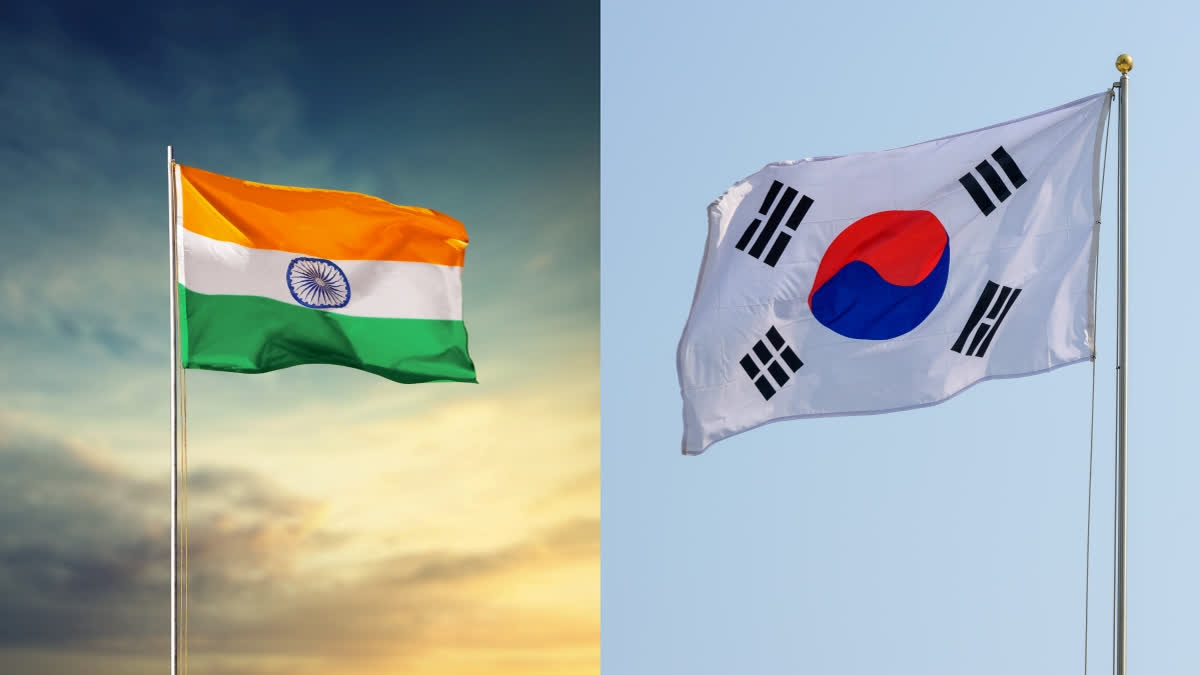New Delhi: During the course of his visit to South Korea on March 5-6, External Affairs Minister S Jaishankar delivered a speech at the Korean National Diplomatic Academy on the theme "Broadening horizons: India and Korea in the Indo-Pacific" in which he explained how India and the East Asian nation can work together for the peace and prosperity in the Indo-Pacific region and beyond by building supply chain resilience, leveraging complementary technology strengths, and linking geographies through connectivity.
"The Indo-Pacific emerged as a consequence of geo-political shifts in the last few decades," Jaishankar said. "Till then, American strategic dominance kept the Pacific separated from the Indian Ocean as a theatre. This was meant to assert a certain primacy of interest in the former. Where the Indian Ocean itself was concerned, the focus was much more centred around the Gulf. However, as challenges changed and capabilities were stretched, a more cohesive effort was needed not only in respect of its own resources but working with more partners as well. This period has therefore not only seen a revision in strategic concepts but also a more open approach to global collaboration."
Explaining that the perspective of India in terms of the Indo-Pacific region is somewhat different, he said that New Delhi's interests were steadily extended as part of the Look East and then Act East policies. India's stakes, he said, in terms of trade, investment, services, resources, logistics and technology in the Indo-Pacific are growing by the day.
"Ensuring the stability, safety and security of this region is therefore vital for us. We have an obligation to the global commons, just as we have a duty to do global good," Jaishankar said.
In this connection, he emphasised on the importance of South Korea's releasing of an Indo-Pacific Strategy in 2022. "My understanding is that it (South Korea’s Indo-Pacific Strategy) envisages a free, peaceful and prosperous region based on three principles of inclusiveness, trust and reciprocity," Jaishankar said. "This certainly creates the basis for working more closely with like-minded partners."
India, it may be mentioned here, is part of the Quad, also comprising the US, Japan and Australia that is working for a free and open Indo-Pacific in the face of China’s hegemony in the region that stretches from the east coast of Japan to the east coast of Africa.
While being members of the Quad, India and Japan also established the Act East Forum, which aimed at providing a platform for India-Japan collaboration under the rubric of New Delhi's Act East Policy and Tokyo's Vision of a Free and Open Indo-Pacific.
It is in light of this that Jaishankar's specific reference to South Korea's Indo-Pacific Strategy throws up the importance of forging an India-South Korea-Japan trilateral alliance, an idea that was seeded during the visit of then Prime Minister Manmohan Singh to Seoul in 2012.
A joint statement issued following a meeting between Singh and then South Korean President Lee Myung-bak had stated: "The two leaders welcomed the commencement of a trilateral India-ROK (Republic of Korea or South Korea)-Japan dialogue amongst think-tanks of the three countries, the first of which will be held in Delhi in 2012."
Following this, the First Track II Dialogue among India, Japan and South Korea was held in New Delhi in June 2012. Addressing the Dialogue, Sanjay Singh, then Secretary (East) in the Ministry of External Affairs said: "We seek a peaceful and secure Asia free from the threats of terrorism, proliferation, piracy and conflicts between states. There is a common commitment to maintaining freedom of the seas, combating terrorism and promoting inclusive economic growth. India, Japan and ROK depend heavily on the Sea Lanes of Communications (SLOCs) for their energy security."
He also added that he expected the trilateral to "generate ideas that would influence the wider relationship existing amongst the partners at governmental level and at the people-to-people level and develop a shared understanding on how we view our region and the emerging Asian architecture".
What he did not directly mention was the growing belligerence of China in the region. However, for one reason or another, the proposed trilateral alliance between India, South Korea and Japan could not fructify.
